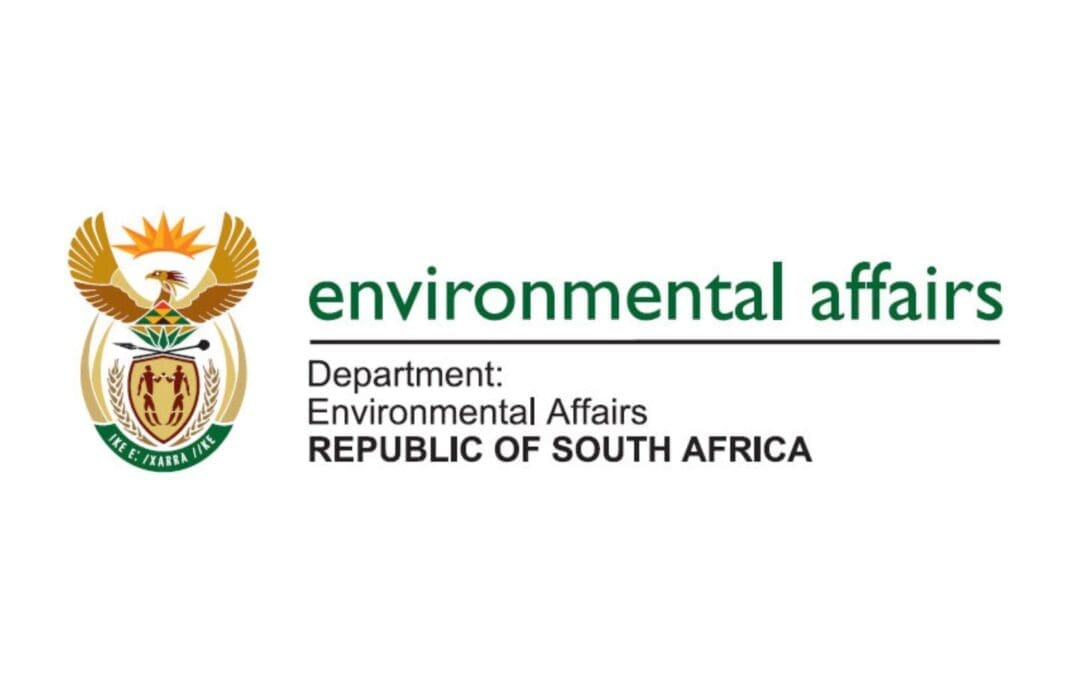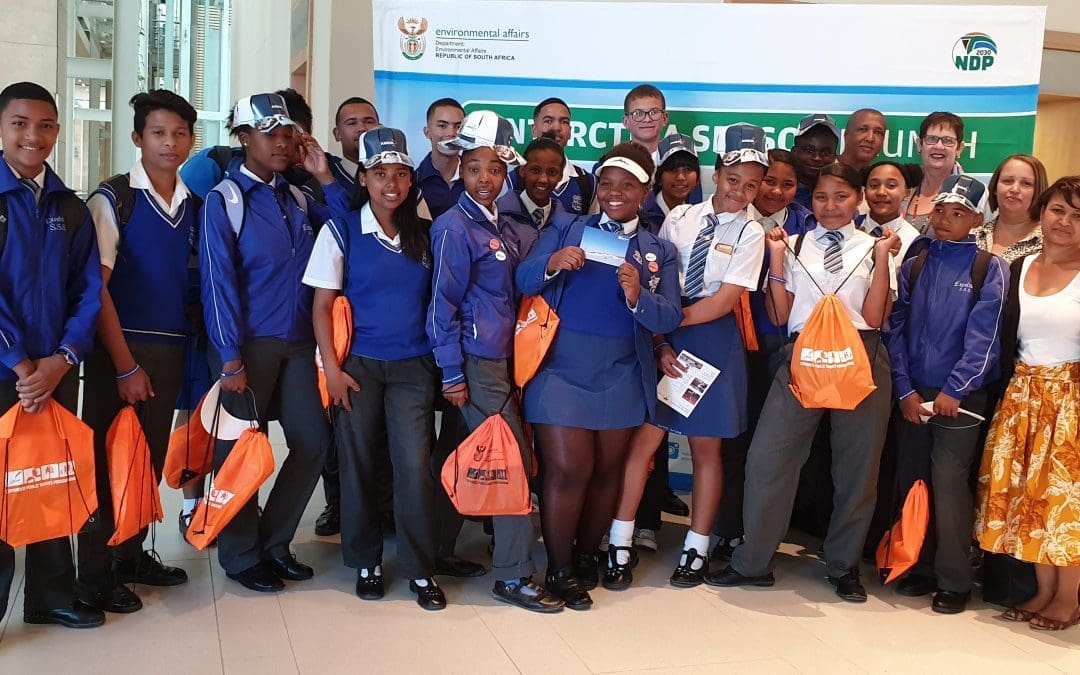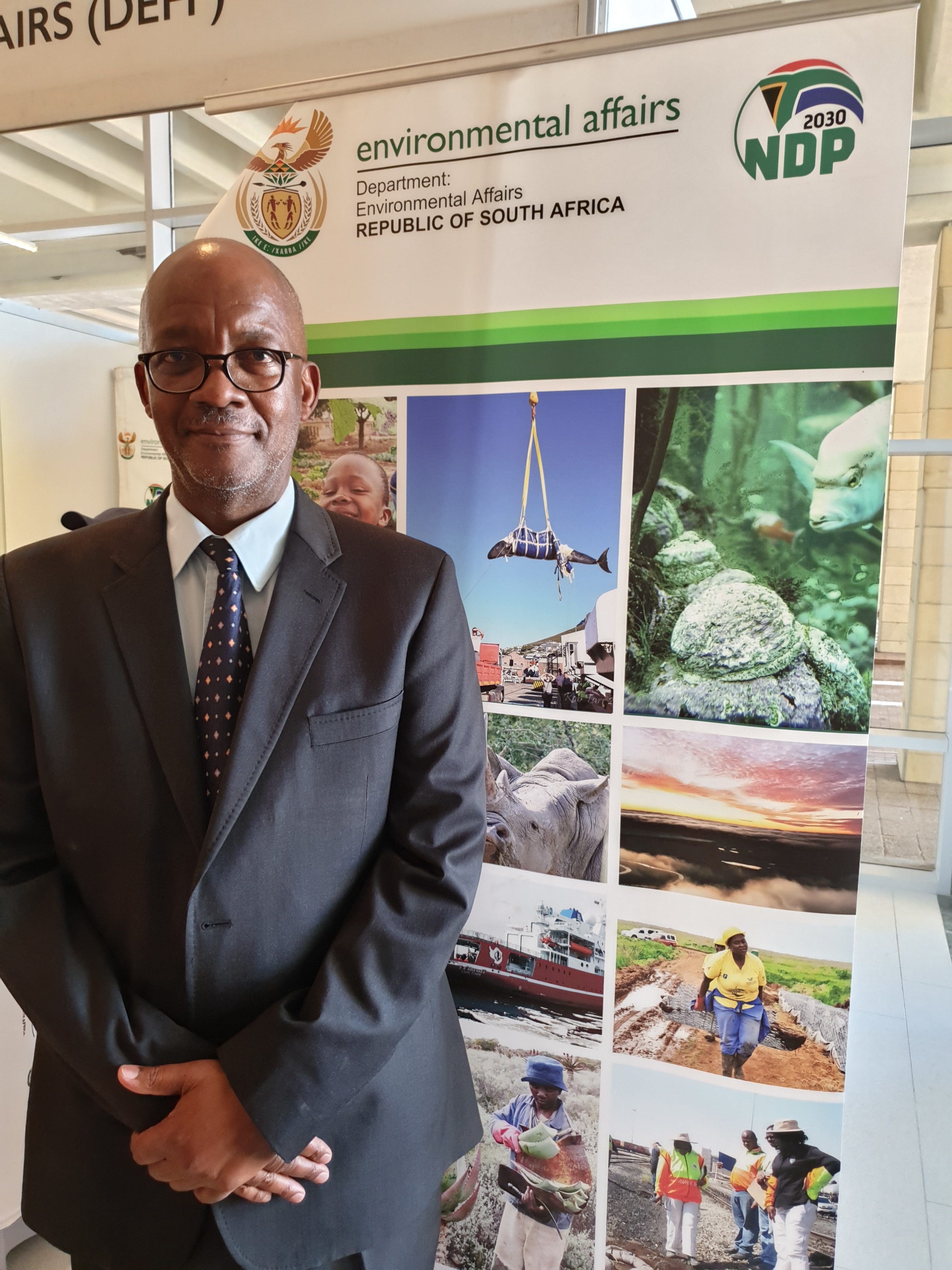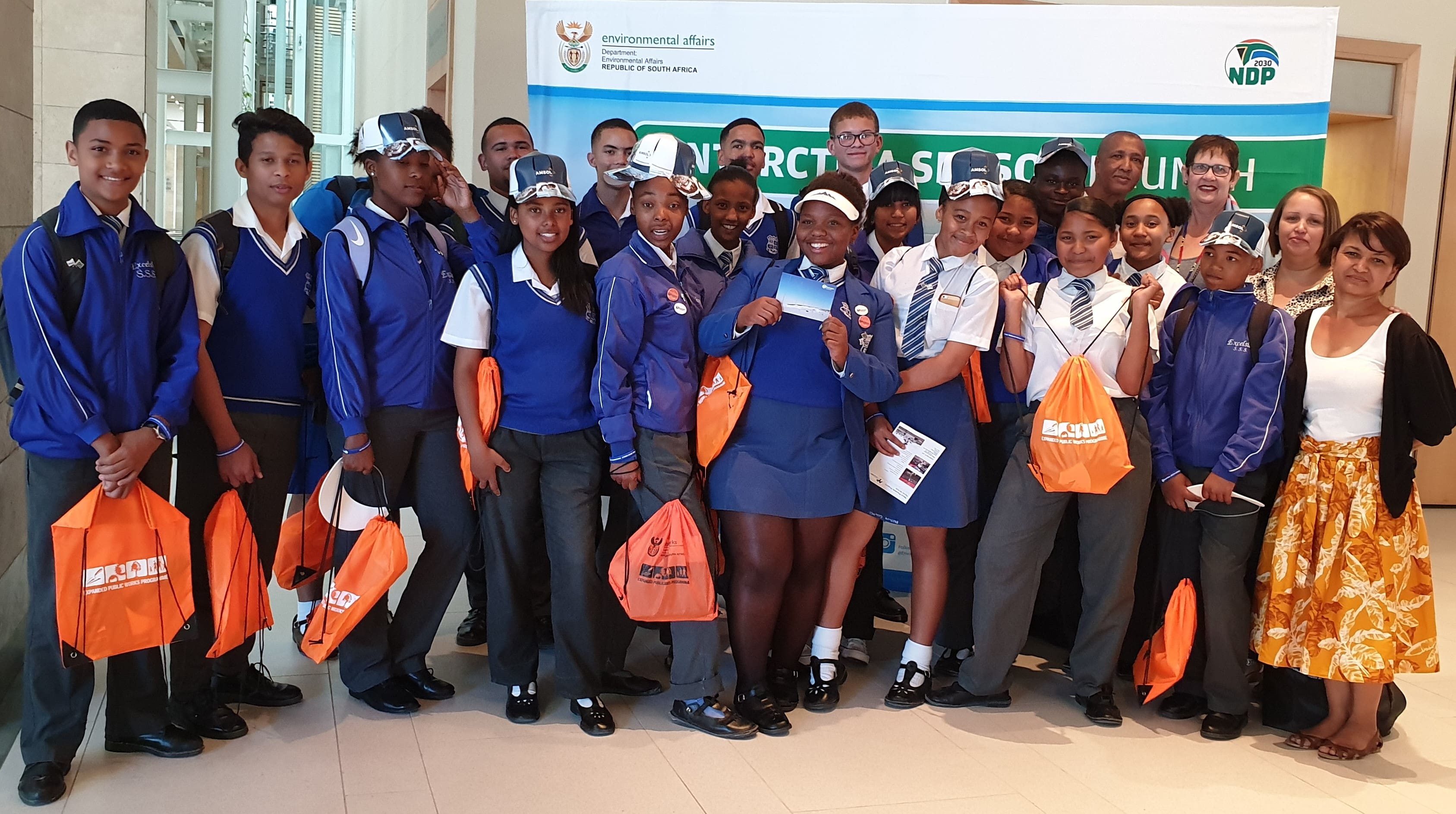
by Ria Olivier | Feb 13, 2020 | Announcement, Current Event, Meetings, News, Research, SANAP, Science
 SAVE the Date for the 6th Biannual SANAP Symposium that will take place 22-25 June 2020.
SAVE the Date for the 6th Biannual SANAP Symposium that will take place 22-25 June 2020.
Read Gansen Pillay opening speech to the SANAP community at the previous symposium in Hermanus.
Communication form the Director of Knowledge Advancement and Support (KAS), Tracy Klarenbeek :  ” Please save the date for the 2020 SANAP Symposium: 22-25 June 2020 (inclusive). This date has been selected to accommodate the university exam timetable, and the departure of the SEAMester cruise. So as to feed into the international space, it is also scheduled to take place before the 2020 SCAR Conference in Hobart in August 2020. The event is going to take place in the Western Cape. More details to follow in due course. “
” Please save the date for the 2020 SANAP Symposium: 22-25 June 2020 (inclusive). This date has been selected to accommodate the university exam timetable, and the departure of the SEAMester cruise. So as to feed into the international space, it is also scheduled to take place before the 2020 SCAR Conference in Hobart in August 2020. The event is going to take place in the Western Cape. More details to follow in due course. “
Benefits of Attending Conferences 
Get feedback on an early version of your latest work.
Get to know other people in your field.
Hear about the latest research.
Improve your presentation and communication skills.
Meet your academic heroes.
Engage in high-level debates and refine your ideas.
Adding to your CV.
 Left: Opening session of the 5th Biannual SANAP Symposium hosted by CPUT and SANSA.
Left: Opening session of the 5th Biannual SANAP Symposium hosted by CPUT and SANSA.
Venue will soon be announced and Symposium website opened.

by Ria Olivier | Feb 10, 2020 | Announcement, Research, Science
Opening Date: Monday, 10 February, 2020
Closing Date: Sunday, 31 January, 2021
NRF One Call for Proposals 2020/2021
During the last three years the National Research Foundation (NRF) has embarked on a process designed to enhance and simplify the NRF administrative interface with Researchers, Students and Designated Authorities. This has been done by streamlining its application templates and its Call Opening process, in line with the forthcoming Research Support Strategies by the Department of Science and Technology (DST) and the NRF.
The NRF therefore has pleasure in announcing the opening of the NRF One Call for Proposals.
The Call includes the following funding categories:
- Concept Notes
- Customised Programmes
- Infrastructure
- Institutional Grants
- Postdoctoral Grants
- Research Grants: General
- Research Grants: International
- Research Grants: Thuthuka
- Research Grants: Without Student Support
- Travel, Training and Conference Grants
- Travel, Training and Conference Grants: Scholarship- and Fellowship-holders
Applications must be submitted electronically on the NRF Online Submission System at https://nrfsubmission.nrf.ac.za. All Framework and Funding and Application Guide documents are available on the NRF website at https://www.nrf.ac.za/funding/framework-documents. These documents should also be consulted for the relevant contact persons for each Funding Instrument.
by Ria Olivier | Feb 5, 2020 | Announcement, Gough Island, Jobs


The next Gough Island Overwintering Expedition will depart from Cape Town in September 2020. This will be the 66th Gough Island overwintering team who will return to Cape Town in October 2021.
Positions currently advertised:
If you are interested in applying to overwinter, please click here.
Please note that applications close between 1 March 2020.
Please download the PDF advert of the position you are interested in and follow the application instructions as set out in the advert. Download Z83 here
Read more:
Recent newsletter of Gough65 team (Click here).
Click here and here for more information on Gough Island (English).
Photo Credit: Julius Klette

by Ria Olivier | Feb 5, 2020 | Announcement, Current Event, Fellowship, SA Agulhas II, SEAmester, Southern Ocean, Uncategorised

CLOSING DATE extended to 13 MARCH 2020
DOWNLOAD APPLICATION FORMS
SEAmester – South Africa’s Class Afloat aims to introduce marine science as an applied and cross-disciplinary field to students who have shown an affinity for core science disciplines. It will combine traditional class-room lectures with hands-on ship-based deck activities for a maximum of 46 students; while providing them with an opportunity to support specialist scientists in recognised marine research activities. Our research group comprises of over 30 oceanographic, fisheries, biogeochemical and biological experts, who jointly have trained over 600 Southern African students on-board a wide variety of international and local research vessels. read more at SEAmester website
How do I qualify?
A maximum of 46 post-graduate (Honours/BTech, MSc/MTech, PhD and Interns) University and Technikon students will be selected nationwide. Applications will be accepted from currently registered post-graduate students with a background in marine or similar sciences. Past sea-going experience is not compulsory. Left: Rudzanie Silima best Student SEAmester 2019 with Prof Isabelle Ansorge of UCT
 What ship will SEAmester take place on?
What ship will SEAmester take place on?
The new South African polar research vessel SA Agulhas II will be used for SEAmester V. The SA Agulhas II is a state-of-the-art icebreaker and is fully equipped for all marine research activities. To find out more go to https://www.sanap.ac.za/
What will it cost me?
Nothing. SEAmester is fully funded through the Departments of Science and Technology (DST) and Environmental Affairs (DEA). All board and lodging onboard the SA Agulhas II will be provided free of charge through SEAmester.
What research will SEAmester be involved in??
SEAmester will run in parallel to the scientific objectives of the Agulhas System Climate Array (ASCA) spearheaded by DSTs SAEON Egagasini node. ASCA is a multi-institutional, international collaboration and designed to provide the first long-term observations of Agulhas Current volume, heat and salt transport and its variability from seasonal to interannual timescales. ASCA’s objectives are to determine how the Agulhas Current and its role in the global conveyor belt varies over time. To find out more go to http://asca.dirisa.org

Listening for mammal sounds.

Working on their Aghulus bottle opener in the practical session.
What will be expected from me?
You will be expected to choose one of two module steams – either Tools of the Trade or Oceans in a Changing World (see overleaf). Learning will comprise of daily class-room lectures, daily assignments and deck work – running in parallel to the ASCA programme. Students from both streams will also provide research support to specialist scientists and obtain daily hands-on deck training, data collection, sampling and data analysis. Each student will gain experience working with the full suite of oceanographic, atmospheric and biological ship-based instrumentation such as CTD, underway measurements and autonomous devices such as Argo, SVP drifters as well as gain experience on all biological net tows. Training on data analysis following each deployment will be given, as well as technical and electronic experience in calibrating, assembling and modifying each instrument. In addition, each student will work on a specific scientific mini-project related to their area of interest and the scientific research underway.
What are the tentative dates for SEAmester?
SEAmester will depart on the 13th July returning to Cape Town on the 24th July 2020. Travel arrangements and costs will be made through the SEAmester programme for all students residing outside of the Western Cape. PLEASE NOTE: Applicants to be aware that the cruise dates may be subject to change by a few days.
What travel documentation must I have?
SEAmester will be working outside of South African waters and therefore all participants are requested to have a valid passport. SAMSA approved medicals will be required and costs incurred will be covered by the SEAmester programme. Students with study visas need to ensure that their visas have not expired.
Is there reading material – See the attached files (SANCOR site) for any additional reading material, or contact Isabelle.Ansorge@uct.ac.za
See SEAmester 2019 videos on SEAmester website as well as the previous years

by Ria Olivier | Jan 21, 2020 | Announcement, Research
Procedures to be followed for the assessment and minimum criteria for reporting of identified environmental themes in terms of section 24(5)(a) and (h) of the National Environmental Management Act, 1998, when applying for Environmental authorisation
Barbara Dallas Creecy, Minister of Environment, Forestry and Fisheries, give notice of her intention to prescribe protocols for the assessment and minimum report content requirements of environmental impacts for environmental themes for activities requiring environmental authorisation, as contained in the Schedule hereto. When the requirements of these protocols apply, the requirements of Appendix 6 of the Environmental impact Assessment Regulations, 2014, published under Government Notice No. R. 982 in Government Gazette 38282 of 04-December 2014, as amended, and promulgated under sections 24(5) and 44 of the National Environmental Management Act, 1998 (Act No. 107 of 1998), are replaced by these requirements. Each protocol applies exclusively to the environmental theme identified within its scope. Multiple themes may apply, and assessments for these themes must be undertaken in accordance with the relevant protocol, or, where no specific protocol has been prescribed, in accordance with the requirements of the EIA Regulations, as amended.
Full Document available on the Antarctic Legacy of South Africa archive under resources
Members of the public are invited to submit written comments or inputs to the Minister, within 30 days of publication of this Notice in the Gazette

by Ria Olivier | Dec 18, 2019 | Announcement, Antarctica, Legacy, SANAP, Uncategorised
One of the ways Gateway nations have employed to generate an interest in Antarctica has been to hold an Antarctic launch or festival at the beginning of the Antarctic season (November to March).During the launch they celebrate their explorers, science, and remember those who perished in Antarctica endeavours. The Antarctica season in South Africa starts with the departure of S.A. Agulhas II during the first week of December. Since 2016 the Department of Environment Affairs has held seminars with the Norwegians over two days during this time. For 2019 a multilateral seminar was held over three days and the countries that leave for Antarctica from Cape Town plus China had been invited to participate.
The official opening session was addressed by Minister of Environment Forestry and Fisheries of South
Africa, Ambassador of Norway and Cape Town Port Manager. Other diplomats that attended the opening
session include Netherlands, Japan and Russia. South African stakeholders had exhibitions at the Cape
Town International Convention Centre (CTICC) over a period of four days. Dr Bemiasa of Madagascar
represented the Intergovernmental Oceanographic Commission sub-commission for Africa.
During the course of the multilateral seminar seven speakers from Norway, Germany, India and China
provided key note addresses and also acted as panelists. South Africans also provided some twenty one
presentations and also acted as panelists. The presentations covered Science, Polar heritage, Polar
logistics and Polar Gateways. The presentations were of a high standard and there was a healthy
exchange of ideas.

Dr Monde Mayekiso
A bilateral seminar was held with Norway 5th to 6th December. The bilateral discussions sought to identify areas of common interest and serve to deepen the relationship.
Dr Monde Mayekiso opened the Antarctic season exhibition on at the Cape Town International Convention Centre (CTICC). Exhibition includes stalls from DEFF, DPW, AMSOL, SANSA, and many more. The exhibition was attended by schools, the general public and attendees of the seminars and discussions.
The Antarctic Legacy of South Africa Exhibit at the Antarctic Season Opening. The SANAE IV 360 footage on the new SANAP website has been launched during the exhibition. Dr Gilbert Siko (DSI) & Mr Nish Devanunthan (DEFF) visit the ALSA stall and Quintes Venter and Andrea Raubenheimer of FishGate.

Excelsior Secondary School learners and teachers with AMSOL and ALSA caps, DPW bags and ALSA principal investigator, Ria Olivier
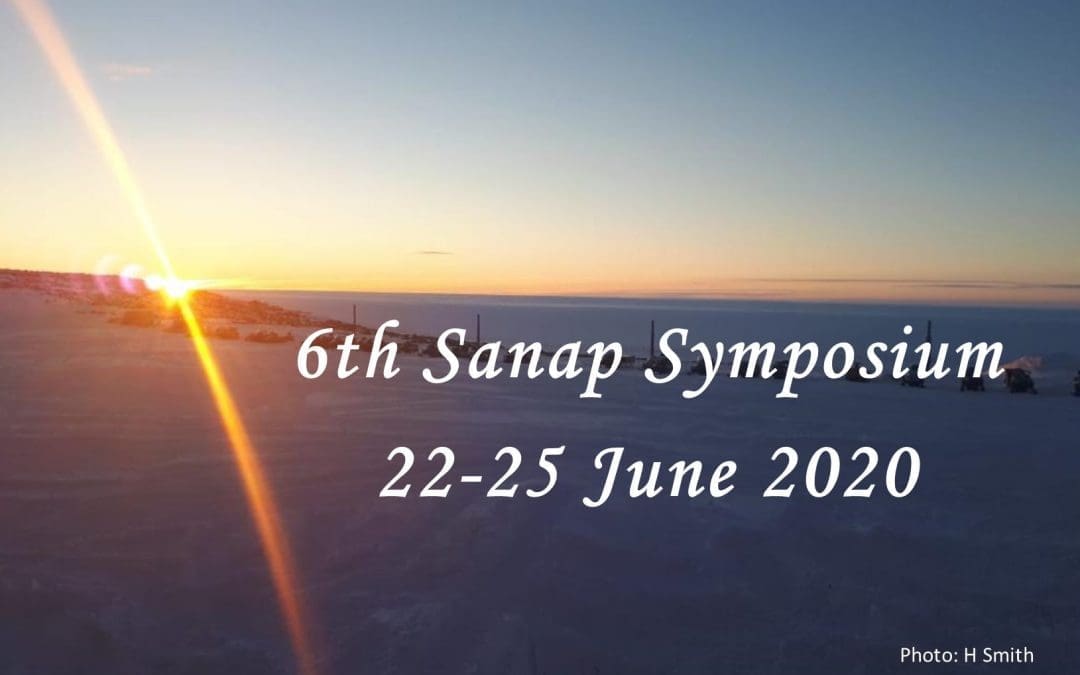
 SAVE the Date for the 6th Biannual SANAP Symposium that will take place 22-25 June 2020.
SAVE the Date for the 6th Biannual SANAP Symposium that will take place 22-25 June 2020.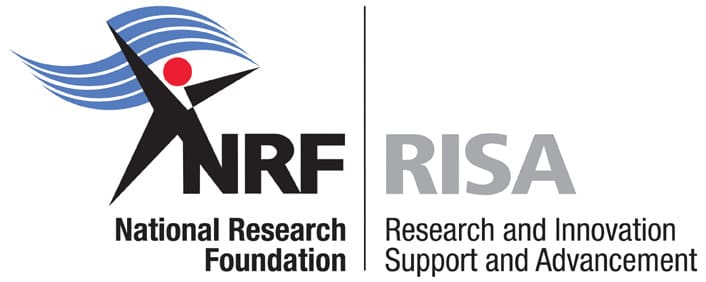 ” Please save the date for the 2020 SANAP Symposium: 22-25 June 2020 (inclusive). This date has been selected to accommodate the university exam timetable, and the departure of the SEAMester cruise. So as to feed into the international space, it is also scheduled to take place before the 2020 SCAR Conference in Hobart in August 2020. The event is going to take place in the Western Cape. More details to follow in due course. “
” Please save the date for the 2020 SANAP Symposium: 22-25 June 2020 (inclusive). This date has been selected to accommodate the university exam timetable, and the departure of the SEAMester cruise. So as to feed into the international space, it is also scheduled to take place before the 2020 SCAR Conference in Hobart in August 2020. The event is going to take place in the Western Cape. More details to follow in due course. “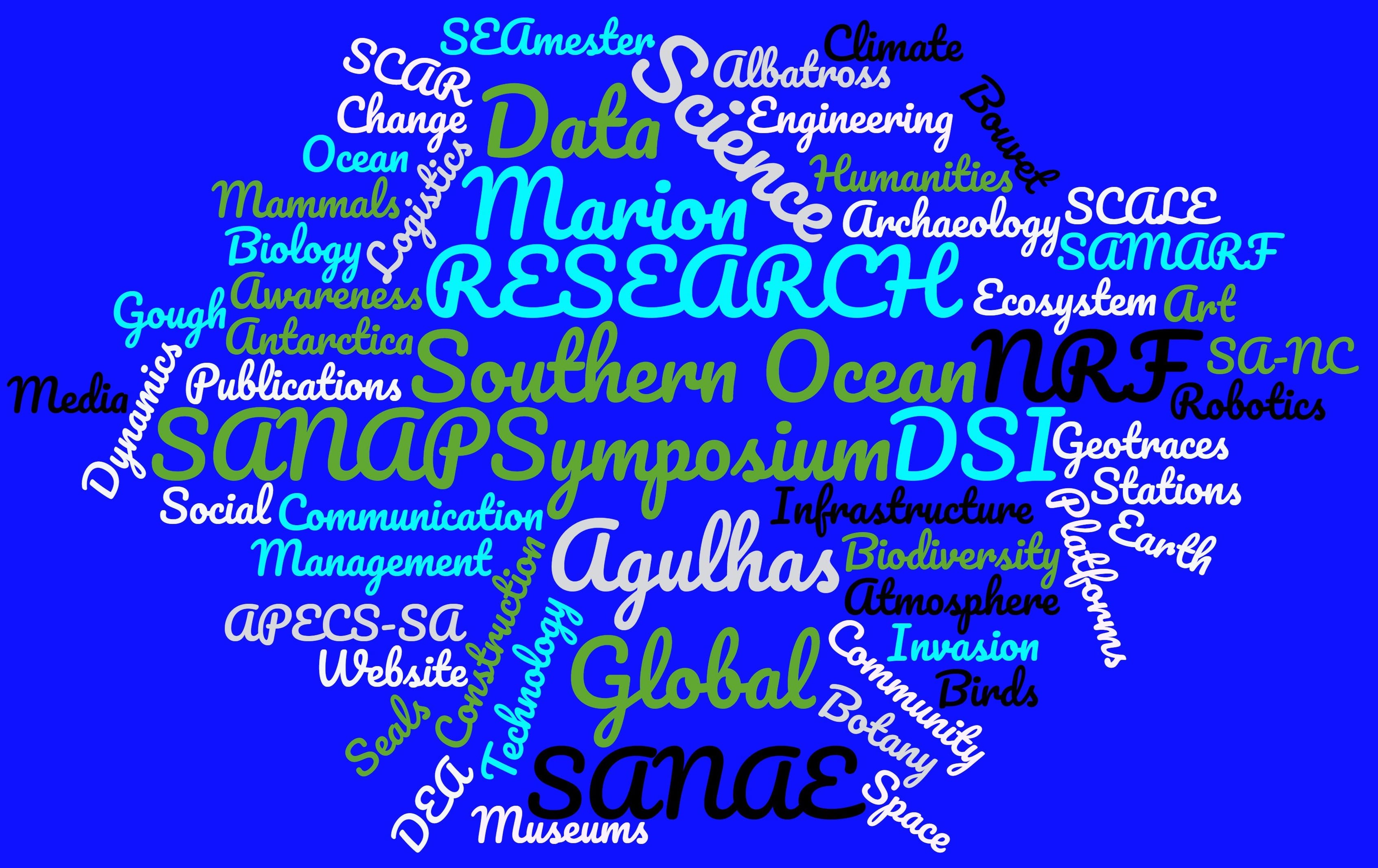
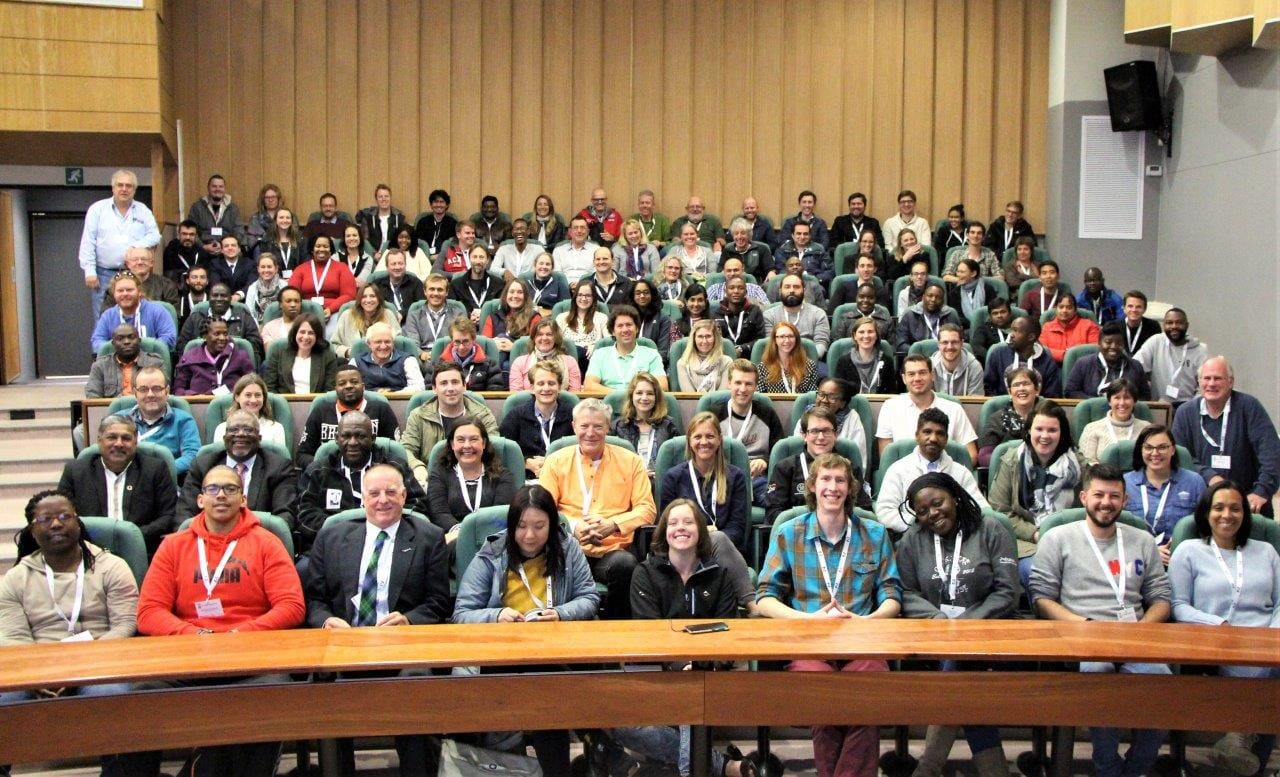 Left: Opening session of the 5th Biannual SANAP Symposium hosted by CPUT and SANSA.
Left: Opening session of the 5th Biannual SANAP Symposium hosted by CPUT and SANSA. 

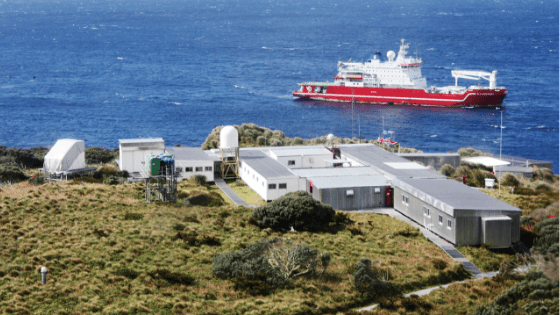


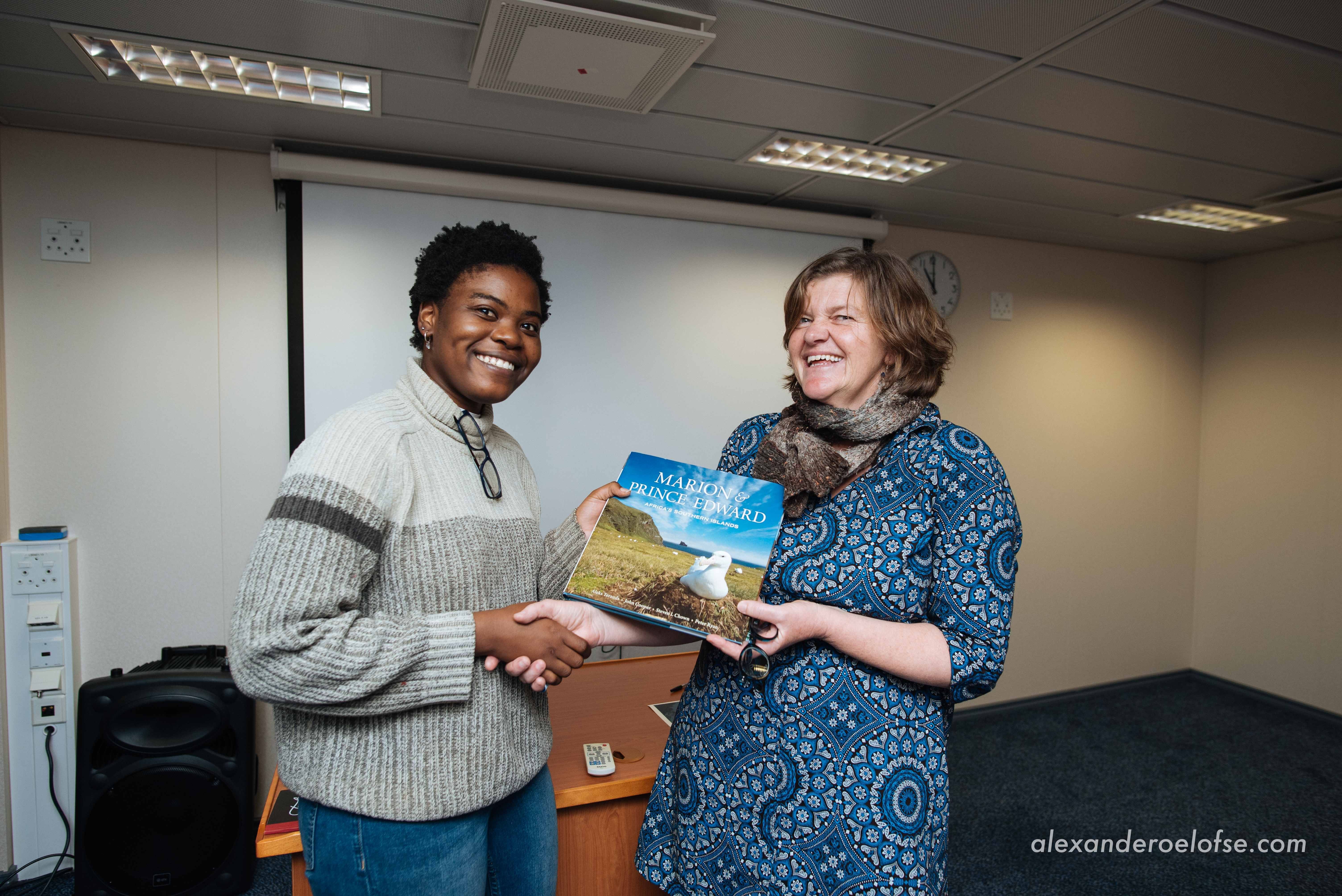
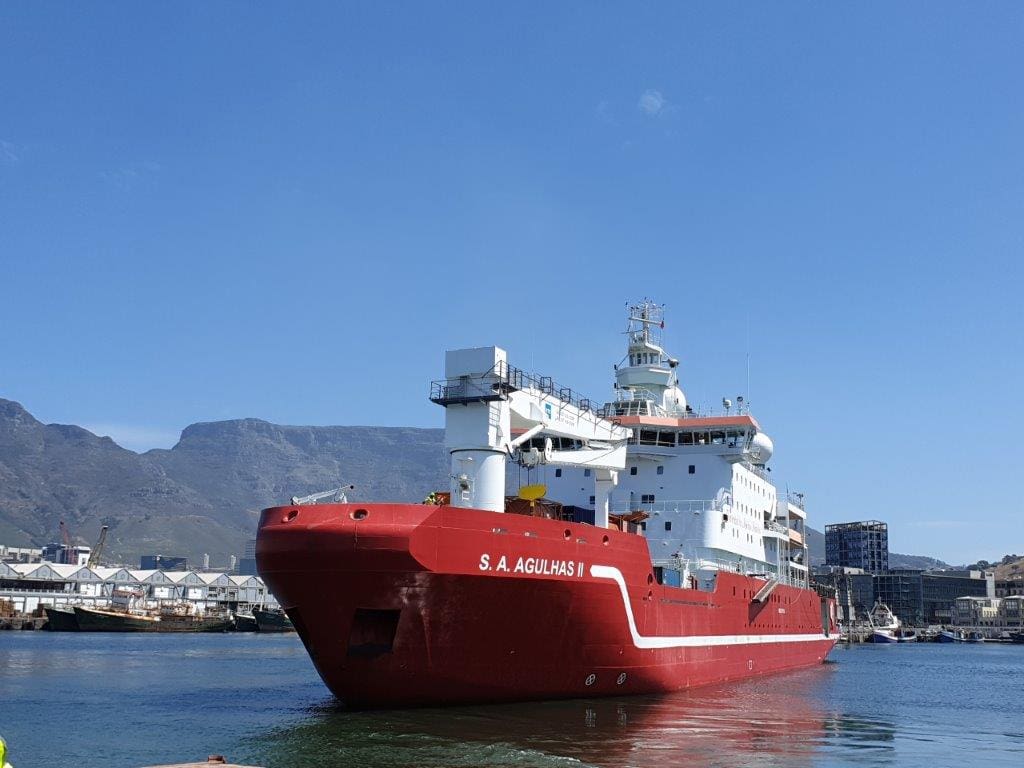 What ship will SEAmester take place on?
What ship will SEAmester take place on? 

